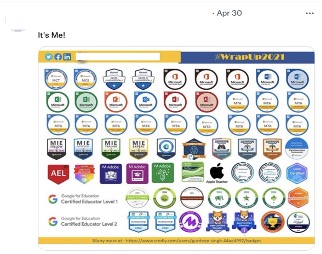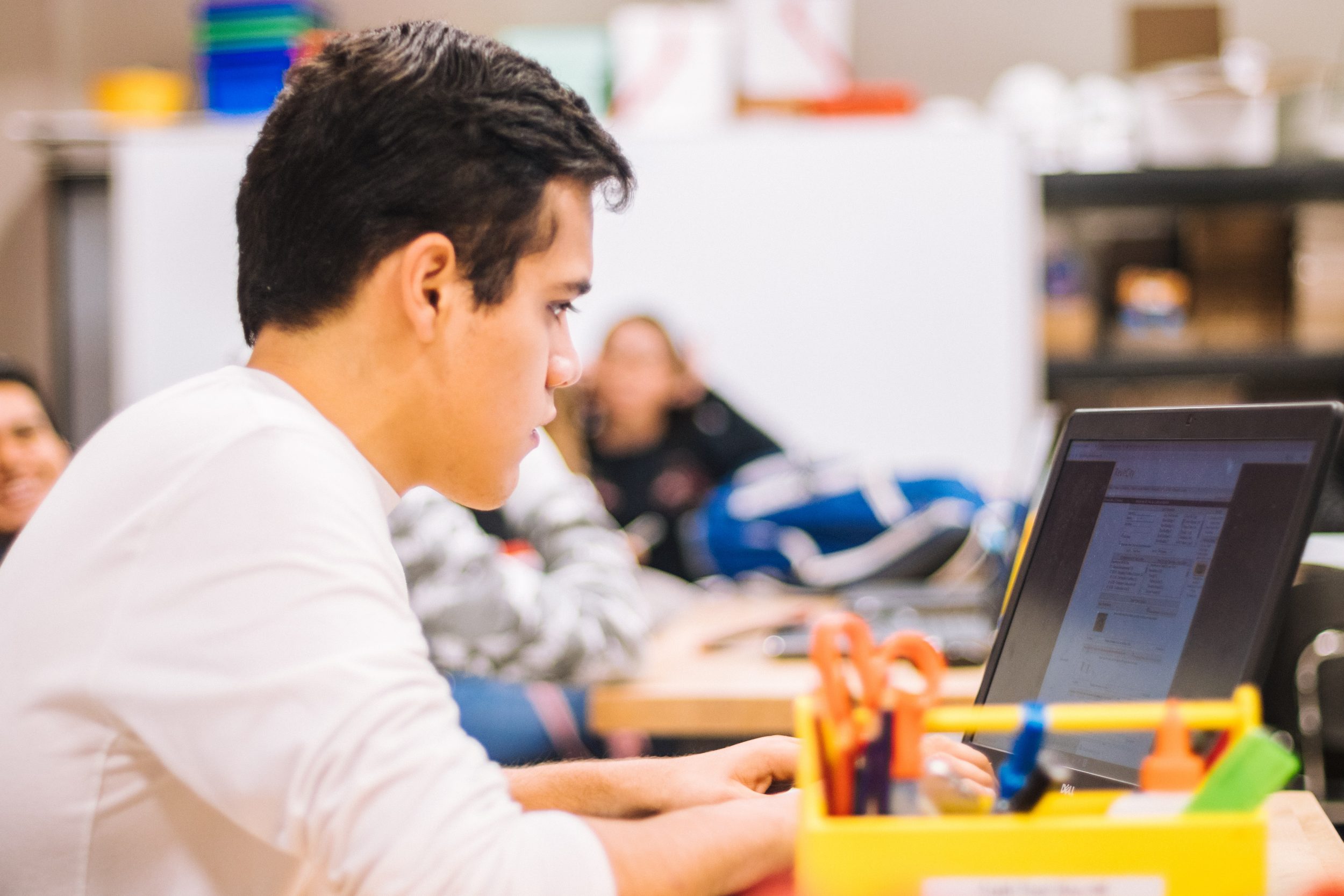
 The UK government has given no sign of when it plans to regulate digital technology companies. In contrast, the US Federal Trade Commission will tomorrow consider whether to make changes on the Children’s Online Privacy Protection Act to address the risks emanating from the growing power of digital technology companies, many of which already play substantial roles in children’s lives and schooling. The free rein offered thus far has so far led many businesses to infiltrate education, slowly degrading the teaching profession and spying on children, argue LSE Visiting fellow Dr Velislava Hillman and junior high school teacher and Doctor of Education candidate Molly Esquivel. They take a look here at what they describe as the mess that digitalized classrooms have become, due to the lack of regulation and absence of support if businesses cause harm.
The UK government has given no sign of when it plans to regulate digital technology companies. In contrast, the US Federal Trade Commission will tomorrow consider whether to make changes on the Children’s Online Privacy Protection Act to address the risks emanating from the growing power of digital technology companies, many of which already play substantial roles in children’s lives and schooling. The free rein offered thus far has so far led many businesses to infiltrate education, slowly degrading the teaching profession and spying on children, argue LSE Visiting fellow Dr Velislava Hillman and junior high school teacher and Doctor of Education candidate Molly Esquivel. They take a look here at what they describe as the mess that digitalized classrooms have become, due to the lack of regulation and absence of support if businesses cause harm.
Any teacher would attest to the years of specialized schooling, teaching practice, code of ethics and standards they face to obtain a license to teach; those in higher education also need a high-level degree, published scholarship, postgraduate certificates such as PGCE and more. In contrast, businesses offering education technologies enter the classroom with virtually no demonstration of any licensing or standards.
The teaching profession has now become an ironic joke of sorts. If teachers in their college years once dreamed of inspiring their future students, today these dreamers are facing a different reality: one in which they are required to curate and operate with all kinds of applications and platforms; collect edtech badges of competency (fig1); monitor data; navigate students through yet more edtech products.
Unlicensed and unregulated, without years in college and special teaching credentials, edtech products not only override teachers’ competencies and roles; they now dictate them.
Figure 1: Teachers race to collect edtech badges
Wellbeing indexes and Karma Points
“Your efforts are being noticed” is how Thrively, an application that monitors students and claims to be used by over 120,000 educators across the US, greets its user. In the UK, Symanto, an AI-based software that analyses texts to infer about the psychological state of an individual, is used for a similar purpose. The Thrively software gathers metrics on attendance, library use, grades, online learning activities and makes inferences about students – how engaged they are or how they feel. Solutionpath, offering support for struggling students, is used in several universities in the UK. ClassDojo claims to be used by 85% of UK primary schools and a global community of over 50 million teachers and families. Classroom management software Impero, offers teachers remote control of children’s devices. The company claims to provide direct access to over 2 million devices in more than 90 countries. Among other things, the software has a ‘wellbeing keyword library index’ which seeks to identify students who may need emotional support. A form of policing: “with ‘who, what, when and why’ information staff members can build a full picture of the capture and intervene early if necessary”.
These products and others adopt the methodology of algorithm-based monitoring and profiling of students’ mental health. Such products steer not only student behavior but that of teachers too. One reviewer says of Impero: “My teachers always watch our screens with this instead of teaching”. When working in Thrively, each interaction with a student earns “Karma Points”. The application lists teacher goals – immediately playing on an educator’s deep-seeded passion to be their best for their students (fig2). Failure to obtain such points becomes internalized as failure in the teaching profession. Thrively’s algorithms could also trigger an all-out battle of who on the teaching staff can earn the most Points. Similarly, ClassDojo offers a ‘mentor’ program to teachers and awards them ‘mentor badges’.
 Figure 2: Thrively nudges teachers to engage with it to earn badges and “Karma points”; its tutorial states: “It’s OK to brag when you are elevating humanity.”
Figure 2: Thrively nudges teachers to engage with it to earn badges and “Karma points”; its tutorial states: “It’s OK to brag when you are elevating humanity.”
The teacher becomes a ‘line operator’ on a conveyor belt run by algorithms. The amassed data triggers algorithmic diagnostics from each application, carving up the curriculum, controlling students and teachers. Inferential software like Thrively throws teachers into rabbit holes by asking them not only to assess students’ personal interests, but their mental state, too. Its Wellbeing Index takes “pulse checks” to tell how students feel as though teachers are incapable of direct connection with their students. In the UK, the lax legislation with regards to biometric data collection, can further lead to advancing technologies’ exploitation of such data into developing mental health prediction and psychometric analytics. Such practices not only increase the risks of harm towards children and students in general; they dehumanize the whole educational process.
Many other technology-infused, surveillance-based applications are thrust into the classroom. Thrively captures data of 12-14-year-olds and suggests career pathways besides how they feel. They share the captured data with third parties such as YouTube Kids, game-based and coding apps – outside vendors that Thrively curates. Impero enables integration with platforms like Clever, used by over 20 million teachers and students, and Microsoft, thus expanding the tech giant’s own reach by millions of individuals. As technology intersects with education, teachers are merely a second thought in curriculum design and leading the classroom.
Teachers must remain central in children’s education, not businesses
The digitalization of education has swiftly moved towards an algorithmic hegemony which is degrading the teaching profession. Edtech companies are judging how students learn, how teachers work – and how they both feel. Public-private partnerships are giving experimental software with arbitrary algorithms warrantless titles of “school official” to untested beta programme, undermining teachers. Ironically, teachers still carry the responsibility for what happens in class.
Parents should ask what software is used to judge how their children feel or do in class and why. At universities, students should enquire what inferences are made about their work or their mental health that emerges from algorithms. Alas, this means heaping yet more responsibility on individuals – parents, children, students, teachers – to fend for themselves. Therefore, at least two things must also happen. First, edtech products and companies must be licensed to operate, the way banks, hospitals or teachers are. And second, educational institutions should consider transparency about how mental health or academic profiling in general is assessed. If and when software analytics play a part, educators (through enquiry) as well as policymakers (through law) should insist on transparency and be critical about the data points collected and the algorithms that process them.
This article represents the views of the author and not the position of the Media@LSE blog, nor of the London School of Economics and Political Science.
Featured image: Photo by Arthur Lambillotte on Unsplash








